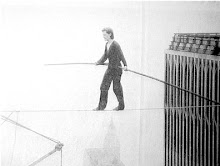Like many people, in light of the Arizona shooting tragedy I have suddenly become much more aware of the language that is used around political rhetoric. Even here in Canada, politicians have waged campaigns since the dawn of modern democracy. They take aim at policies, positions, ridings and even opponents. And here, too, high-ranking politicians sometimes receive threatening correspondence from unhappy citizens.
In my mind, it's a bit of a stretch to blame the tragedy on either left- or right-wing rhetoric, but the fact that people are now talking about inflammatory political language lends credence to the notion that we have a problem, regardless of its role in this particular incident.
Three things we do in the Westminster parliamentary model, however, set an example of decorum, even if our elected leaders don't always live up to it outside the House of Commons.
First of all, Cabinet Ministers are given the honorific, “honourable.” The Minister of Finance is “the Honourable Jim Flaherty.” The Prime Minister is “the Right Honourable Stephen Harper.” These titles remind our citizenry that while politics may be a game to some, it's also serious business.
Second of all, there are expressions that absolutely cannot be used inside the Commons or the Senate. “Liar” is one of them. The opposition can accuse a Minister of having her facts wrong, or even of having trouble separating fact from fiction. But call someone a liar and you have to either apologize for using “unparliamentary language” or be evicted from Parliament (by force if necessary) until you do apologize.
Third, Members of Parliament don't speak directly to their counterparts on the other side of the House. They address their questions and answers to the Speaker.
For instance, the opposition might ask, “Mr. Speaker, can the Minister of Foreign Affairs explain to the House why (insert issue here)?
The Minister might reply, “Mr. Speaker, the member opposite seems to expect the taxpayers to foot the bill for (insert response here).”
In this way, you never have politicians directly accusing each other of anything. It's all run through the filter of the Speaker.
I can't say it's a perfect system. Once the politicians leave the House the gloves come back off. And compared to how the British Parliament conducts itself, Canada's elected representatives seem like a roomful of schoolkids.
I'm sure the vast majority of Americans are aghast at the extreme language coming from both ends of the political spectrum. The move by one representative to have his colleagues sit together during the State of the Union address may never happen, but the fact that it can even be proposed is encouraging.
In the Westminster model, those representatives not part of the governing party are duty-bound to oppose the government. Hence, the term “Official Opposition” to describe the party with the second-largest number of seats in Parliament. There is very little deal-making going on, and none at all when the ruling party has more than 50 percent of the seats in the House.
Most of us have found a way to disagree and remain cordial, even friends. Most people, as well, would be amazed if they realized how much socializing goes on between politicians of different stripes when the microphones are turned off. It really is a game, just like hockey. When the final whistle blows the combatants meet at center ice and shake hands. Too bad some of their followers can't do the same.
Thursday, January 13, 2011
Subscribe to:
Post Comments (Atom)

No comments:
Post a Comment